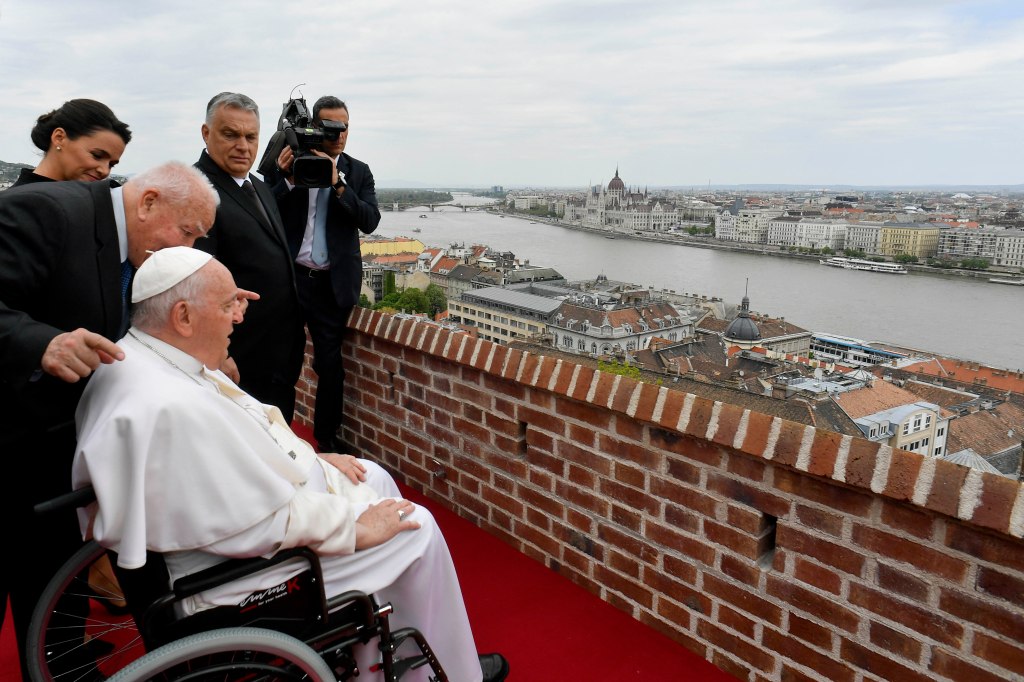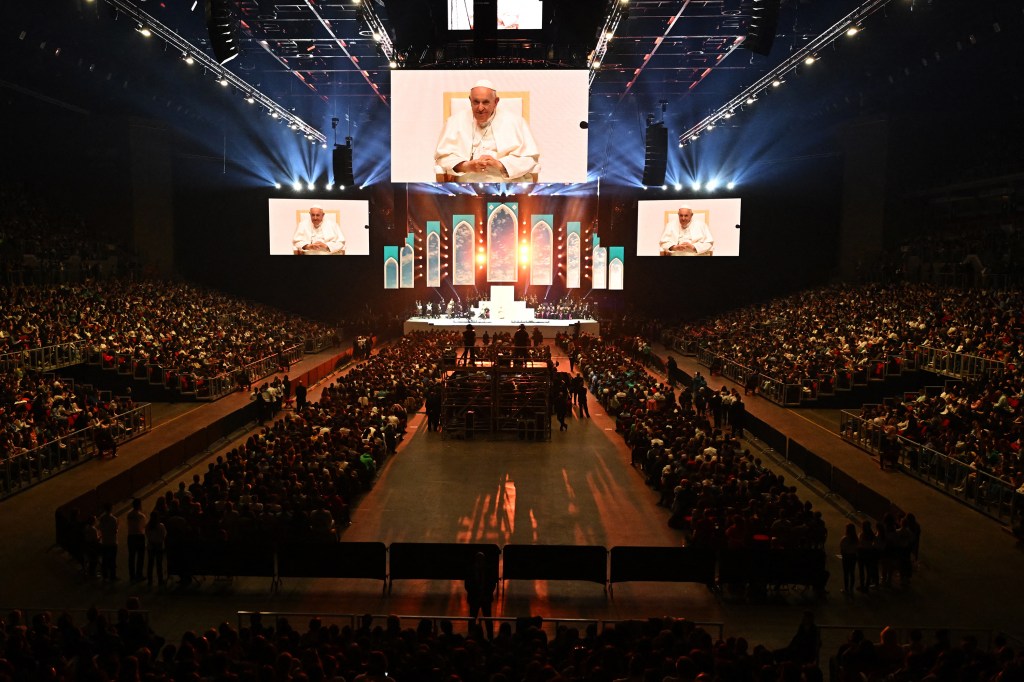Pope Francis’ three-day trip to Hungary, from Friday to Sunday, April 28-30, is giving him the chance to meet with academics, politicians, youth, and Church leaders.
These brief excerpts from some of his addresses so far will give you a taste of the visit:
1Two temptations as Church in modern world
To bishops, priests, and other Church leaders.
These are the two approaches – I might say the two temptations – against which, as a Church, we must always be on guard. The first is a bleak reading of the present time, fuelled by the defeatism of those who insist that all is lost, that we have lost the values of bygone days and have no idea where we are headed. […] Then there is the other risk, that of a naive reading of our time, based on a comfortable conformism that would have us think that everything is basically fine, the world has changed and we must simply adapt without thinking critically about it. This is bad. So, to combat a bleak defeatism and a worldly conformism, the Gospel gives us new eyes to see. It gives us the grace of discernment, to enable us to approach our own time with openness, but also with a spirit of prophecy.
2Solution to vocations crisis
In the same speech to bishops, priests, and other Church leaders.
Here I think in particular of the excessive workload of our priests. The demands of parish and pastoral life are numerous, yet vocations are declining and fewer priests are available. Many priests are elderly and show signs of fatigue. This situation is common in many parts of Europe, and everyone – pastors and laity alike – should feel responsible for addressing it. First, by prayer, since the solutions will come from the Lord and not from the world, from the tabernacle and not from the computer. Then, by renewed fervour for promoting vocations and finding ways to attract and excite young people about a life of following Jesus, also in special consecration.

3Future depends on prayer
In the same speech to bishops, priests, and other Church leaders.
I am convinced that you have a granite-like faith. Let us thank God for it. Here I would mention Cardinal Mindszenty, who so believed in the power of prayer that even today, his words are repeated, almost like a popular saying: “If a million Hungarians are praying, I will have no fear of the future.” Be welcoming, bear witness to the prophecy of the Gospel, but above all be women and men of prayer, because the future depends on this.
4The stupidity of shutting in on yourself
Nowadays there is a great temptation to be satisfied with a cell phone and a few friends. What a pity! Even if many people are willing to settle for that, or even if you are too, it is not good or healthy. You cannot shut yourselves away in small groups of friends, talking only on your cell phone. To do so – allow me to say it – is somewhat stupid.

5A detail the Gospel asks us to imagine
There is one detail the Gospel [of the multiplication of the loaves and fishes] does not tell us, but leaves it to our imagination. How did the disciples persuade that young man to give everything he had? They may have asked him to make his lunch available, and he may have looked around, seeing thousands of people, and perhaps responded as they did, by saying, “It’s not enough; why are you asking me and not handling this yourselves, as Jesus’ disciples? Who am I?” Perhaps too, they told him that Jesus himself was the one who was asking. In any event, the young man does something extraordinary: he trusts. That young man, who brought his own lunch, trusts; he gives everything away, holding nothing back. He had come there to receive from Jesus, and now he finds himself giving to Jesus. Yet that is how the miracle happened. It started with sharing: Jesus’ multiplication of the loaves and fish started with a young person who shared with him, for the sake of others. In Jesus’ hands, the little he possessed became much. Faith is that way: it starts with giving freely, with enthusiasm and generosity, overcoming our fears and stepping forward! Dear friends, each of you is precious to Jesus, and also to me! Remember that no one can take your place in the history of the world and the Church: no one can take your place, no one can do what only you can do.
6People do not live on bread alone
A lesson for the whole Church: it is not enough to provide bread to fill stomachs; we need to fill people’s hearts! Charity is much more than material and social assistance. It has to do with the whole person; it strives to put people back on their feet with the love of Jesus: a love that helps them to recover their beauty and their dignity.

